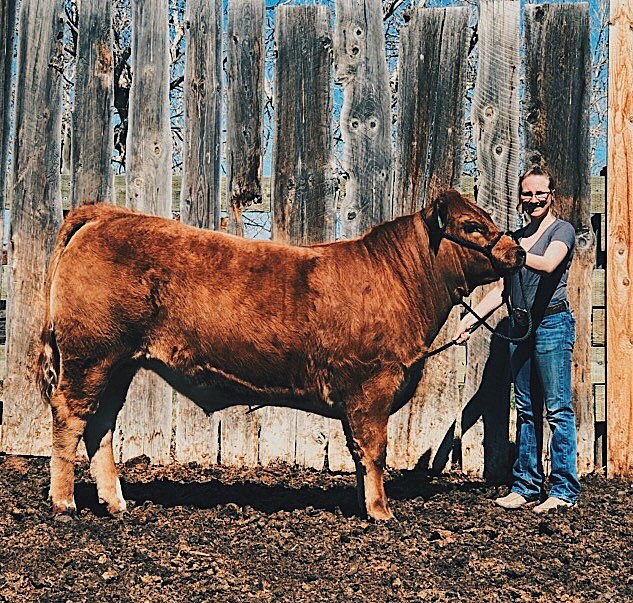Seventeen-year-old Addison Nolette is among the students enrolled in the Black Diamond school’s cow-calf component of the Green Certificate Program.
It’s one of 11 specialization courses provided to Alberta senior high school students by Alberta Agriculture and Forestry, offering education in cow-calf operations and care for six credits, cow-calf process and practices for five credits and cow-calf husbandry and systems for five credits.
“It’s a really good program to take, especially if you’re going into college,” said Nolette, who’s been accepted into Olds College’s agricultural management program. “It looks really good on a resume if you’re trying to get a job somewhere, knowing you have that experience and knowledge you can refer back to.”
Nolette has worked on her grandfather’s ranch near Longview from a young age, assisting with calving and branding.
“I’m hoping to be able to go further into the cattle industry,” she said. “I’ve grown up around them – they’re something I’m passionate about.”
Nolette enrolled in the program in Grade 10 to beef up her education.
“Basically it’s a program where you can earn credits from learning animal husbandry, the procedures, just all the stuff you need to know for owning a cow-calf operation,” she said. “I learned quite a lot from it. There’s a lot about farm safety, pulling calves, the nutrition side of cattle.”
Lori Isberg, Oilfields’ off-campus co-ordinator for the program, said 16 students are enrolled in the program, with 10 taking the cow-calf course.
“It’s basically the equivalent to a farm-registered apprenticeship program,” she said. “It advances the learning they’re already doing on the farm and earning credits while pursuing their passion and their goals. This runs everything from cow-calf operations to equine to feedlot to beekeeping.”
Isberg said the course was created and tested by people in the industry, and is offered only at the high school level.
“It’s everything from handling cattle, maintaining cattle health, operating the feedlot program, operating general farm equipment,” she said. “They go through a booklet and do the learning. When they feel they’re ready to do their first level training they sign up for the testing period.”
The cow-calf course is in-depth, where students learn cattle behavior, handling cattle in pastures, weighing cattle, cattle identification, first aid, financial principles, safety and operating and handling farm equipment, said Isberg. She said it takes most students two years to complete.
To qualify, Isberg said students must complete Agriculture 3000, a farm safety program offered both at the school and online. She said it’s about a week’s worth of training.
“It’s what you do on your own, on the farm, you have to have access to a trainer and training – typically it’s parents and some are on working farms,” she said. “It’s what they want to do career wise.”
Isberg said the program is a great boost for students pursuing the cattle industry.
“I find it highly valuable in terms of advancing their learning into what they’re passionate about doing and opportunities that come their way in cow-calf operations, whether it’s going to the farm for employability skills or going to the post secondary environment,” she said. “I see how hard kids work, how hard families work and the care and concern that they give for their animals.”
The program makes a difference in not only promoting the industry but also promoting the passion and learning that youth have in the cow calf operations, Isberg said.
“It’s real, it’s hand on, it makes a difference in even acknowledging the passion that these kids have for the industry,” she said. “It’s critical that education programs offer that to students.”


.png;w=120;h=80;mode=crop)

